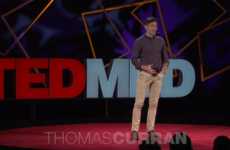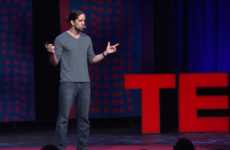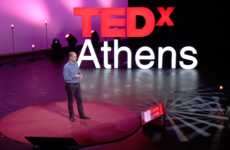
Need Inspiration?
Get inspired by 4,000+ keynote speaker videos & our founder, a top keynote speaker on innovation.
George Monbiot's Talk on Politics of Belonging is Extremely Passionate
Kalin Ned — August 13, 2019 — Keynote Trends
References: ted
The TED talk on politics of belonging is delivered by George Monbiot — an author and a journalist whose work concerns the state of economics. The speaker proposes a new operational economic model as he feels like nothing has been suggested since the recession in 2008. Harnessing the belief that we are "creatures of narrative," Monbiot frames the beliefs of neoliberalism and Keynesianism as a story. He argues that when one story fails — the laissez-faire economy that triggered the Great Depression, another one comes to replace it — a solution was propelled forward by John Maynard Keynes. George Monbiot calls this "the restoration story" and during his talk on politics of belonging, he argues that we are stuck as we have not yet come up with the restoration story to solve the problems of neoliberalism.
The journalist holds that "when we have no story that explains the present and describes the future, hope evaporates." His keynote identifies a need for the public to engage and tell a story that is "simple and intelligible," "grounded in reality," and resonates with the many. Monbiot builds his own version of the much-needed narrative through holding the truest values of humankind in mind — altruism and cooperation. These are present at the core of his proposal.
The talk on politics of belonging goes on to suggest a model that holds the Common at its core -- rejecting the need for competition while celebrating the bridging of networks between people of all walks of life. The positivity lies in the fact that the Common is "neither market nor state, capitalism nor communism." The benefits of such a system are envisioned to be shared equally among its members and to motivate action on the local level. It consists of three elements: "a particular resource; a particular community that manages that resource; and the rules and negotiations the community develops to manage it."
Dubbed 'Politics of Belonging,' this is George Monbiot's restoration story after neoliberalism.
The journalist holds that "when we have no story that explains the present and describes the future, hope evaporates." His keynote identifies a need for the public to engage and tell a story that is "simple and intelligible," "grounded in reality," and resonates with the many. Monbiot builds his own version of the much-needed narrative through holding the truest values of humankind in mind — altruism and cooperation. These are present at the core of his proposal.
The talk on politics of belonging goes on to suggest a model that holds the Common at its core -- rejecting the need for competition while celebrating the bridging of networks between people of all walks of life. The positivity lies in the fact that the Common is "neither market nor state, capitalism nor communism." The benefits of such a system are envisioned to be shared equally among its members and to motivate action on the local level. It consists of three elements: "a particular resource; a particular community that manages that resource; and the rules and negotiations the community develops to manage it."
Dubbed 'Politics of Belonging,' this is George Monbiot's restoration story after neoliberalism.
3.8
Score
Popularity
Activity
Freshness

















